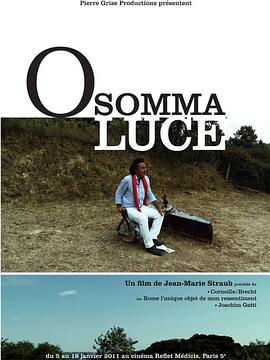 剧情介绍
剧情介绍
The lines start with “O Somma Luce” which is the title of the film and also the 67th line of the 33rd canto in “Paradiso” of Dante’s “Divine Comedy” to the end of “Paradiso”. The film is completed with music and lines instead of emotions and narrations. This is a recent attempt to combine film with literature. The film begins with a black screen and the music of Edgard Varese. The BGM is “Deserts” that was recorded in 1954. After some moments of darkness, the music ends and a middle-aged man sits on a hill, reciting something. He is Giorgio Passerone, an Italian literature professor, and he is reading out of the last part of ‘Paradiso’ of Dante’s Divine Comedy. Jean-Marie Straub expressed how he thinks of Dante through a subtle accent and dialect. The director who had encoded many great artists and musicians including Bach, complete the combination of Dante and Varese, which could seem strange. (Lim Kyung Yong)
扫码用手机观看
分享到朋友圈

